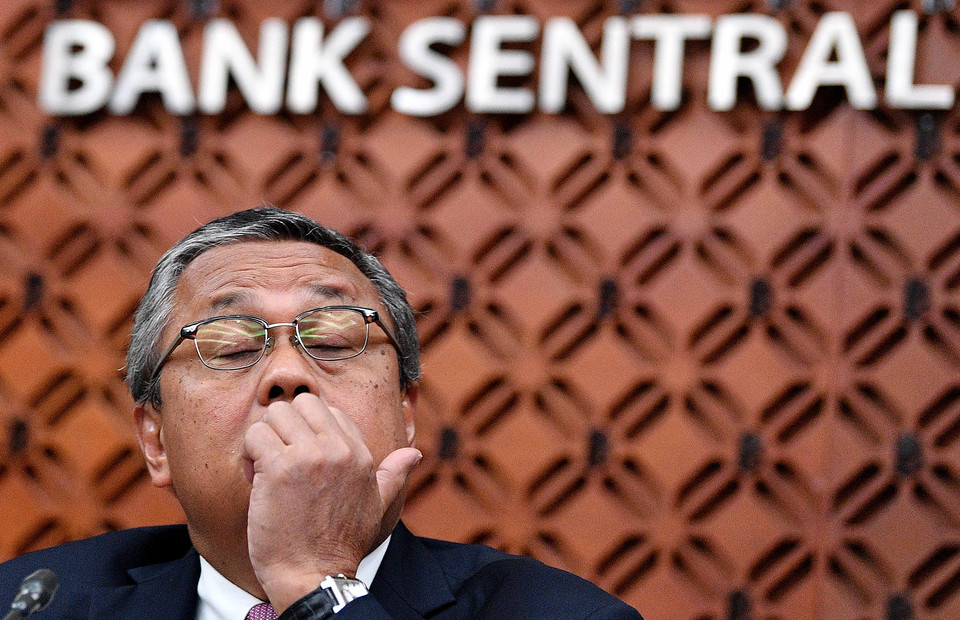Bank Indonesia (BI) has pledged to go all out to bolster the economy as the central bank has forecast economic growth to weaken 0.4 percent in the second quarter due to coronavirus containment measures.
BI Governor Perry Warjiyo projected gross domestic product (GDP) growth to pick up slightly to 1.2 percent in the third quarter and 3.1 percent in the fourth quarter, adding that the central bank might revise down its initial growth projection of 2.3 percent this full year after lower-than-expected first quarter growth.
BI’s forecast was based on the assumption that the virus outbreak would peak in May until mid-June, with economic activities starting to stabilize in the third quarter.
“Our stance remains loose, we will use all of our instruments to boost the economy,” Perry told reporters during a livestreamed news conference on Wednesday. “In the short term, our interest rate policy will prioritize rupiah stability, although there is room to lower the rate.”
The economy grew 2.97 percent year-on-year (yoy) in this year’s first three months as household spending and investment growth slowed amid the COVID-19 outbreak, Statistics Indonesia (BPS) announced Tuesday. The figure is weaker than the government, central bank and economists’ projections of around 4 percent.
The central bank decided to maintain its benchmark rate, the seven-day reverse repo rate, at 4.5 percent in April after trimming it twice this year to a total of 50 basis points in response to the outbreak.
“The COVID-19 pandemic has affected people’s income, spending, investment and trade activities but the fiscal stimulus, economic recovery program, businesses’ restructuring and BI’s support will help soften the impacts,” Perry said, adding that liquidity injection was more effective to support the economy for now compared to lowering the interest rate.
BI has injected a total of Rp 503.8 trillion (US$33.38 billion) in additional liquidity to banks and the financial system to help cushion the economic impacts of the virus outbreak and to strengthen the rupiah as part of its quantitative easing measures.
On the fiscal side, the government has also allocated Rp 436.1 trillion, mainly for healthcare spending, social safety nets, as well as incentives for laid-off workers, among other things.
Permata Bank economist Josua Pardede said growth in the second quarter might contract following lower-than-expected first quarter expansion.
“If economic activity does not pick up by the third quarter, the economy can potentially grow at zero percent to 1 percent this year,” he told The Jakarta Post on Tuesday. “We expect Bank Indonesia to cut its policy rate in the near-term to speed up fiscal stimulus transmission.”

